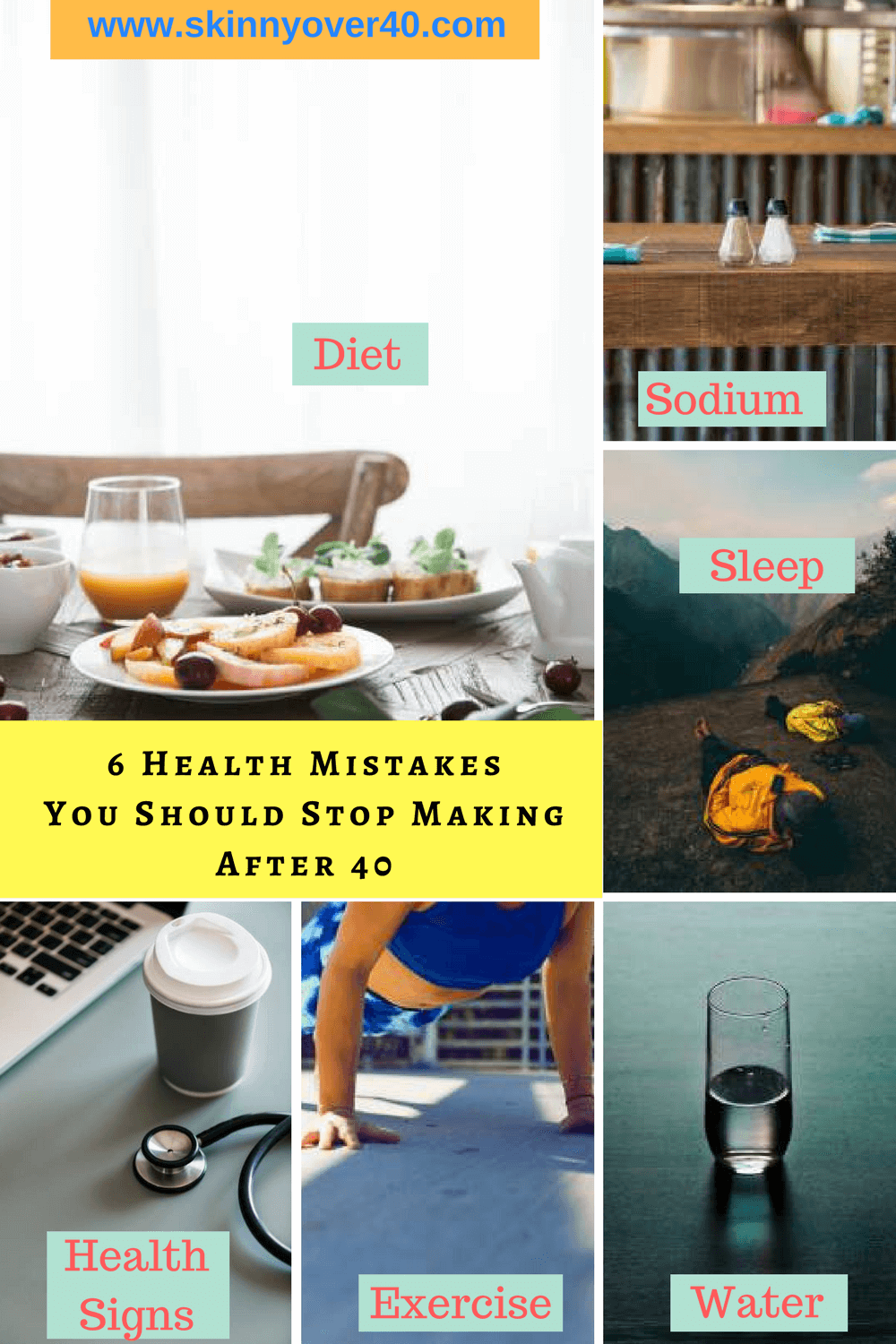
6 Health Mistakes You Should Stop Making After 40
Even though growing older is a static truth of our life, the way in which we grow can mostly be managed by the choices we make in a daily life. Once you turn 40, you start to feel exhausted more easily. However, it doesn’t mean that you should throw your desires out the window without taking challenges.

6 Health Mistakes You Should Stop Making After 40
Do you have that desire to live the same life you used to live in your thirties? Then, it is a perfect time to give a little makeover to your health.
Here’s a list of health mistakes that you should stop making after you turn 40.
Mistake #1: Not Making Sleeping Time a Priority
Just like our mobile phones, our brain and body also require time to recharge and reboot. You should make sleeping time a priority with almost 7 to 9 hours of sleep each night.
Skimping sufficient amount of sleep can affect health, including the risk of obesity, stroke, and hypertension. It can also build up depression, and there is proof that lack of sleep elevates biological aging which can make a person look older.
Mistake #2: Skipping Meals
Avoid daytime fasting. It may look like an excellent dieting hack, but it isn’t! People who keep daytime fasting diet are more inclined to splurge on junk food or overeat something later in the day.
Missing meals at the age of 40 and above can mess up your metabolism. So, what would be the best practice of eating meals? Here we go:
- Eat your breakfast early; within one hour of waking
- Eat slow-to-digest food
- Avoid junk food or heavy meals
- Eat every 5-6 hours
Mistake #3: Overlooking Health Warning Signs
Is your body showing health warning signs such as a peculiar discharge, wincing pain, or some kind of discomfort? When our body gives hints that something is wrong or improper, then we must pay attention to it.
Remember, identifying health issues at the earliest can make those problems more treatable. The best way is to consult every minor issue with your family doctor. You can create a list of concerns and issues before your visit.
Mistake #4: Eating Sodium Excessively
The mineral sodium combines with different dietary factors which ultimately can affect your health. Some foods contain sodium naturally.
If not available naturally, then we add it in the form of salt (sodium chloride) to improve the taste of the meal. It’s in sauces, soup, cheese, processed meats, dressings, and even bread.
Many people take more amount of sodium than the basic requirement of their body. The daily suggested maximum amount is approximately half a teaspoon. Remember, eating too much sodium can cause hypertension which may lead to stroke or heart attack.
Mistake #5: Drinking Less Water Than Usual
Water has many significant benefits. It not just nourishes each organ and cell in our body but also improves the skin tone. Sometimes, the sense of thirst may drop in older adults. Therefore, it is even more essential to stay suitably hydrated as you grow older.
Even though drinking a cup of coffee in the morning or soda-pop in the afternoon counts toward your everyday water intake, a normal straight-up water is always better.
Mistake #6: Avoiding Exercise
Exercise is an excellent way to keep your mind and body young. Even a normal walking exercise can refresh your mood.
A regular exercise regimen couldn’t be perfect without proper strength training. It helps you develop strong bones, improve metabolism, and tone muscles. In addition, it also improves aerobic capability, flexibility, and stability.
These health perks become even more vital as we grow. Approximately half of all women with age 40 and above undergo spine, wrist, or bone fractures, but strength exercises including bone-building can certainly lessen the chance of brittle-bone condition.
That’s all about the six common mistakes people are still making at the age of 40. The risk of health issues increases at the age of 40. Therefore, you should consider this age as a step forward to evaluate welfare and create a long-term plan.
Author Bio:
James is a professional child development coach and a well-known English tutor. He also works as a fitness trainer and diet consultant.




